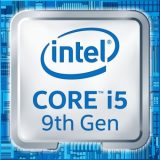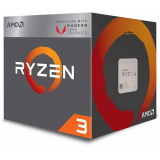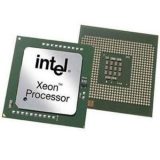 It doesn’t matter if you’re building a brand new, super-duper gaming computer, or are planning on upgrading the PC you currently tear up Fortnite with, the central processing unit (CPU) is going to make a major difference to overall performance. A new CPU will have a huge impact in-game, making your system that much more responsive, and eliminating those brief moments of stuttering that can disrupt otherwise smooth gameplay. But, before you go run out and plop down a bunch of cash for that shiny new computer brain, there are a few things to consider and keep in mind, so you make the best purchase possible. So, let me give you some tips on how to choose the right CPU for your gaming PC.
It doesn’t matter if you’re building a brand new, super-duper gaming computer, or are planning on upgrading the PC you currently tear up Fortnite with, the central processing unit (CPU) is going to make a major difference to overall performance. A new CPU will have a huge impact in-game, making your system that much more responsive, and eliminating those brief moments of stuttering that can disrupt otherwise smooth gameplay. But, before you go run out and plop down a bunch of cash for that shiny new computer brain, there are a few things to consider and keep in mind, so you make the best purchase possible. So, let me give you some tips on how to choose the right CPU for your gaming PC.
Which brand CPU should I buy?
Currently, AMD and Intel are the big names in the CPU biz. Although you can certainly find tech pundits on both sides of the fence who argue one company makes slightly better chips than the other, in truth, both make great next-gen CPUs. So, it is really up to your own brand loyalty, or what your friends convince you to buy. I’ve had different gaming rigs over the years that sported both company’s chips, and never encountered issues or anything that would give me a strong preference for one over the other.
What about overclocking my CPU?
 Overclocking is when you push a CPU to its very limits by forcing it to run at speeds that exceed the normal specs. Overclocking is a great way to squeeze more frames and frags out of a gaming session, for sure, but there are also some downsides to the practice. First, you have to know what you’re doing, or you could end up crashing your system, or worse, pumping too much voltage through your CPU and really frying something. If you overclock, you’ll also need a really good cooling system in your rig to soak up all the extra heat that overclocking produces. If you are buying a new PC, then you also have the choice of slapping down a few extra bucks for a gaming rig that comes with an overclocked CPU.
Overclocking is when you push a CPU to its very limits by forcing it to run at speeds that exceed the normal specs. Overclocking is a great way to squeeze more frames and frags out of a gaming session, for sure, but there are also some downsides to the practice. First, you have to know what you’re doing, or you could end up crashing your system, or worse, pumping too much voltage through your CPU and really frying something. If you overclock, you’ll also need a really good cooling system in your rig to soak up all the extra heat that overclocking produces. If you are buying a new PC, then you also have the choice of slapping down a few extra bucks for a gaming rig that comes with an overclocked CPU.
How many cores do I need?
Cores are basically the processors within the processor. Current CPUs have somewhere between two and 32 cores, with most processors containing four to eight. Each single core is capable of handling its own tasks while the others do the same. Unless you have a really low budget or want a super slow computer, you definitely want at least four cores. In the end though, clock speed is more important than the number of cores, as the higher clock speeds translate to much better performance for your gaming computer.
Also, depending on the scenario—whether you are upgrading your existing system or building a new gaming computer—there are a few things you will also need to keep in mind.
Upgrading your PC’s CPU
 If you are sick of your current gaming rig’s lacklustre performance in newer games, that means it’s usually time to upgrade the components of your PC. Other than getting a new graphics card, a new CPU is going to give you the power boost you need to crunch the data and produce great gaming performance again. However, since you already own a motherboard, you will need to purchase a CPU that is compatible and that has the right socket type. Of course, you could just buy a new and improved motherboard, too, if you were ambitious, had the technical know-how to reconfigure your whole rig, and, of course, had the budget for it all.
If you are sick of your current gaming rig’s lacklustre performance in newer games, that means it’s usually time to upgrade the components of your PC. Other than getting a new graphics card, a new CPU is going to give you the power boost you need to crunch the data and produce great gaming performance again. However, since you already own a motherboard, you will need to purchase a CPU that is compatible and that has the right socket type. Of course, you could just buy a new and improved motherboard, too, if you were ambitious, had the technical know-how to reconfigure your whole rig, and, of course, had the budget for it all.
Buying a CPU for a new PC build
If you are building a new super gaming computer (well, more super than your old rig, hopefully) then you are going to have to make sure that the motherboard you buy is compatible with your new processor. Also, you will have to choose between AMD and Intel, which will have implications for the rest of your build and what you buy.
AMD or Intel for a CPU?
Intel used to be the easy answer up until about one or two years ago. However, AMD has upped its game lately, so you can fully rely on the company’s current batch of CPUs. Many tech pundits will still tell you that Intel has a slight edge over AMD still, with more robust and faster chips. But honestly, unless you have some sort of super brand loyalty for either AMD or Intel as a company, you can choose either for your new build.
 And just for your reference, both AMD and Intel basically offer three tiers of CPU right now, ranging from the Ryzen 3/Core i3 to Ryzen 5/Core i5 and Ryzen 7/Core i7. These break down to good, great and awesome for gaming. Intel also has i9 core processors as well, if you happen to have the budget.
And just for your reference, both AMD and Intel basically offer three tiers of CPU right now, ranging from the Ryzen 3/Core i3 to Ryzen 5/Core i5 and Ryzen 7/Core i7. These break down to good, great and awesome for gaming. Intel also has i9 core processors as well, if you happen to have the budget.
Another thing to keep in mind is AMD tends to support backwards compatibility, while Intel most often does not. That means you should, with a BIOS update, be able to put a first-generation Ryzen chip into second-generation or possibly third-generation Ryzen motherboard, and vice versa. But, while AMD accomplishes this by adopting a single socket for its CPUs, Intel’s chips sometimes vary in pins and power needs. Just make sure you are getting the newest or best generation of CPU (and motherboard) that you can afford. It will make a difference later, so really give some thought to future-proofing your new build.
Final thought
Whether building a new gaming rig so you can become a gaming god, or just upgrading your current rig so you can keep up with current graphical demands without breaking the bank, a new CPU is going to have a dramatic effect on your gameplay. But, you need to choose wisely so your rig is going to last. You need to consider what you play, what you need, what type of system you have or want, and also what type of budget you have. It’s a lot to think about, but worth it in the end when you’re knee deep ion the digital bodies of your enemies.
Do you have anything to add? Let me know in the comment section below, and don’t forget to check out the CPUs available online at Best Buy.








